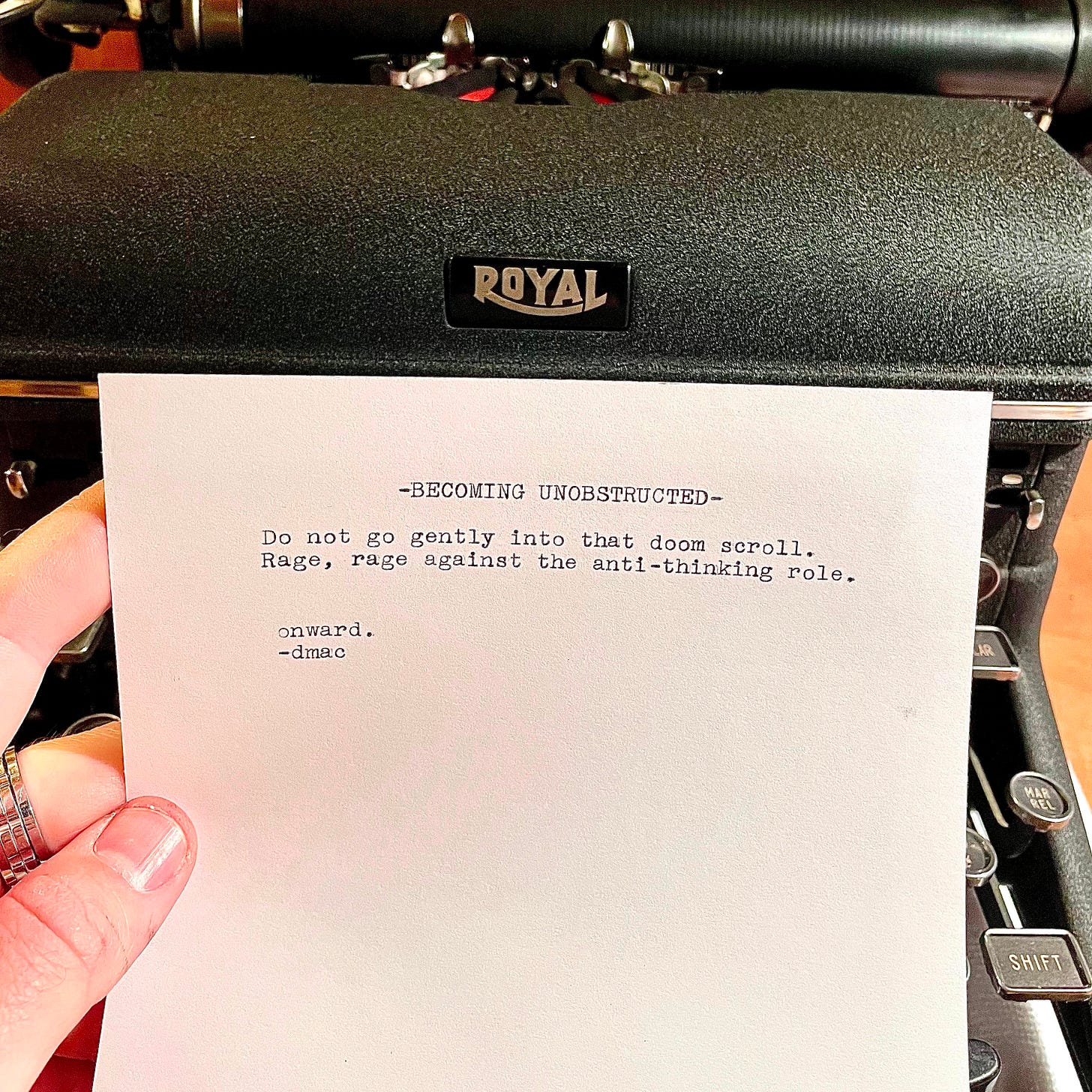Do Not Go Gently Into That Doom Scroll
Critical thinking, the most endangered species of our time.
It was my English teachers who pushed me to think critically. I loved reading books because that meant exploring new worlds. I was the kid in second grade who’d be reading Harry Potter at recess. I remember my teacher giggling the first time I brought the book to school with me… until she saw I was actually reading it.
I was a freshman in high school when I stopped loving reading and writing; if only temporarily.
My English teacher held her class in the computer lab, which was in the basement. You could kind of see out of the storm windows, but only just. All you could make out were the bushes, level with the ceiling. I swear we wrote more in that class than in any college course I took. Fluff wasn’t tolerated—every word had to serve a purpose.
I remember that year we read and wrote about the poem, Do Not Go Gentle into That Good Night by Dylan Thomas. I don’t picture grim determination so much as blunt objectivity when I read it: the world is as it is, and so we must be.
“Rage, rage against the dying of the light” has stuck with me ever since.
Our teacher was very particular. She wouldn’t get up from behind her desk—if she needed to move, she would glide across the floor in her swivel chair. When it came to our writing, she wouldn’t stand for trite claims or summarized filler, either... the whole point of essays in her class was to start asking how the author saw things.
“Why did Dylan Thomas use the word ‘rage’?”
She made us consider the author’s perspective. There was no getting around that. The whole class was about writing what we’d discovered clearly and succinctly. “Take a stance” she’d say. That didn’t make sense to me. It still doesn’t fully. If the goal was to consider alternative viewpoints, how were we to make claims with any certainty?
“Convince me.”
I can hear it even now.
The only thing I wanted to convince her—or anyone—of is that there might be yet another way to look at something. To make sure we were giving it an honest go, she ran our work through plagiarism detection software back when Sparknotes was cutting edge—before Obama’s first term.
The following year, I had an English teacher who’d wanted us to go even deeper. His whole thing was about wondering why the authors might’ve seen things the way they did, not just how they saw them. He was incredibly inquisitive. By the time we got to F. Scott Fitzgerald, Hemingway, Salinger, and Vonnegut, I was reading to find out both why and how instead of only what.
I can’t seem to avoid the need to ingest and express opinions. From the looks of it, neither can anyone else. Critical thinking feels scarce these days and outsized reactions just keep getting louder. Which is why I deleted the Substack app. Scrolling started feeling far too overstimulating—a never-ending onslaught of opinions that completely overwhelms a brain trained on asking why and how. So recently, I sat down at my typewriter to collect my thoughts (I’ve been fixing it up and it’s now fully functional).
The words that sprang to mind were blunt more than grim; a familiar phrase from freshman-year English.
Do not go gentle into that good night.
Rage, rage against the dying of the light.
What’s something you learned from a teacher that you’ll never forget?
Why?
onward.
If you enjoyed reading and want more of this kind of thing, I write short reflections like it each day as part of my daily column.
Sign up to get it here.




